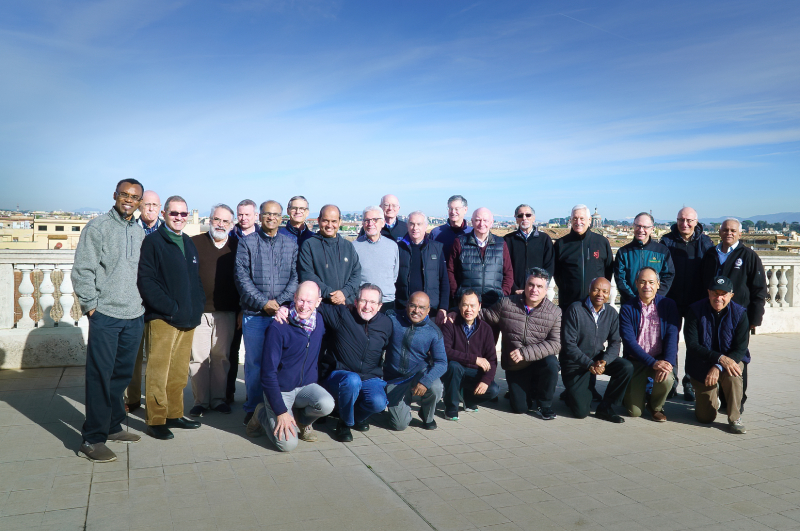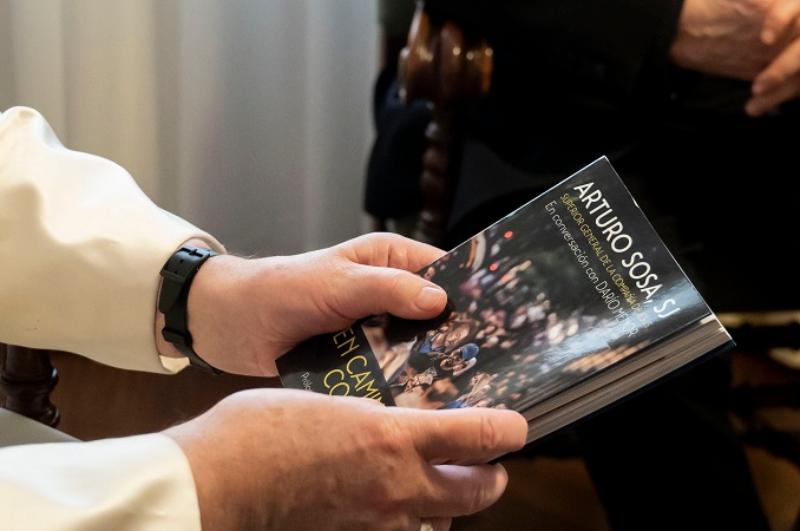

How can one live poorly when one has access to many intellectual and material resources? Is the distinction between “living poorly” individually, as a religious, and “using the costly resources of today’s world” collectively, within the framework of apostolic works or projects, sufficiently clear?
Three times a year, as you will recall, Father General gathers the members of his “Extended Council”. In addition to the usual Council members, the Presidents of the six Geographical Conferences of the Society and the Secretaries of the Apostolic Sectors all meet together for a week of prayer, exchanges and consultation. This is the case this week, from 9 to 13 January.
The overall objective of the week is to help the Superior General prepare the important document that he must, according to his function, present at the beginning of the next statutory assembly at the world level, the so-called Congregation of Procurators. Unlike the General Congregations, a Congregation of Procurators brings together an elected representative from each of the Provinces or Regions, a Jesuit who is not a Major Superior. This allows the General to hear points of view that he does not often have the opportunity to hear, contributions “from below”. This international meeting will take place in Loyola (Spain) in May. We will come back to it.
For the moment, the Consiglio Allargato, as it is called in Italian, is spending a day to discern what fruits have been gathered for the advancement of the Society since the General Congregation of 2016. Then, a day to try to see where the Lord is leading the Society as a whole. But above all, two days are devoted to evaluating the fruits of discernment on one of the main projects launched by Father General a year ago: an in-depth reflection on the vow of poverty.
The Society of Jesus, in Rome, each month, for instance, presents on its website each month since January 2021 the testimony of a Jesuit on his way of understanding and living his vow of poverty (you can access the series by clicking here). The latest of these testimonies is that of Fr. Renato Zecchin, from Australia. Also heard from were Premo Gwadera (Poland), Travis Russell (USA), Jorge Serrano (Colombia), Martin Abad Santos (Philippines), Ignatius Tete (India), among others. What is emerging from these testimonies, but even more from the meetings that Jesuit communities all over the world have had at the request of Father Sosa?
The way or rather the ways of living the vow of religious poverty have always provided opportunities for introspection, awareness, and even challenge for Jesuit religious and their communities. For a religious Order active in the heart of the world that seeks to multiply apostolic fruits - to obtain “results” some would say - is it not necessary to use all the modern means available, even if these may require a lot of money? And how can we live poorly when we have access to many intellectual and material resources? The question raised at the beginning of this article comes up again: is the distinction between “living poorly” individually, as a religious, and “living with the tools of the present world” collectively, in the framework of apostolic works or projects, sufficiently clear?
In the presentation of the “State of the Society”, the introductory speech to the Congregation of Procurators in May, Father General will be able to base his assessment on what was shared during this week’s Consiglio Allargato. He will have heard the reactions of Jesuit communities in various parts of the world. He will have been able to identify both the resistances - there is always resistance on a subject as sensitive as this one - and the graces experienced by Jesuits and communities.
Select Payment Method
Pay by bank transfer
If you wish to make a donation by direct bank transfer please contact Fr Paul Hamill SJ treasurer@jesuits.africa. Fr Paul will get in touch with you about the best method of transfer for you and share account details with you. Donations can be one-off gifts or of any frequency; for example, you might wish to become a regular monthly donor of small amounts; that sort of reliable income can allow for very welcome forward planning in the development of the Society’s works in Africa and Madagascar.
Often it is easier to send a donation to an office within your own country and Fr Paul can advise on how that might be done. In some countries this kind of giving can also be recognised for tax relief and the necessary receipts will be issued.


